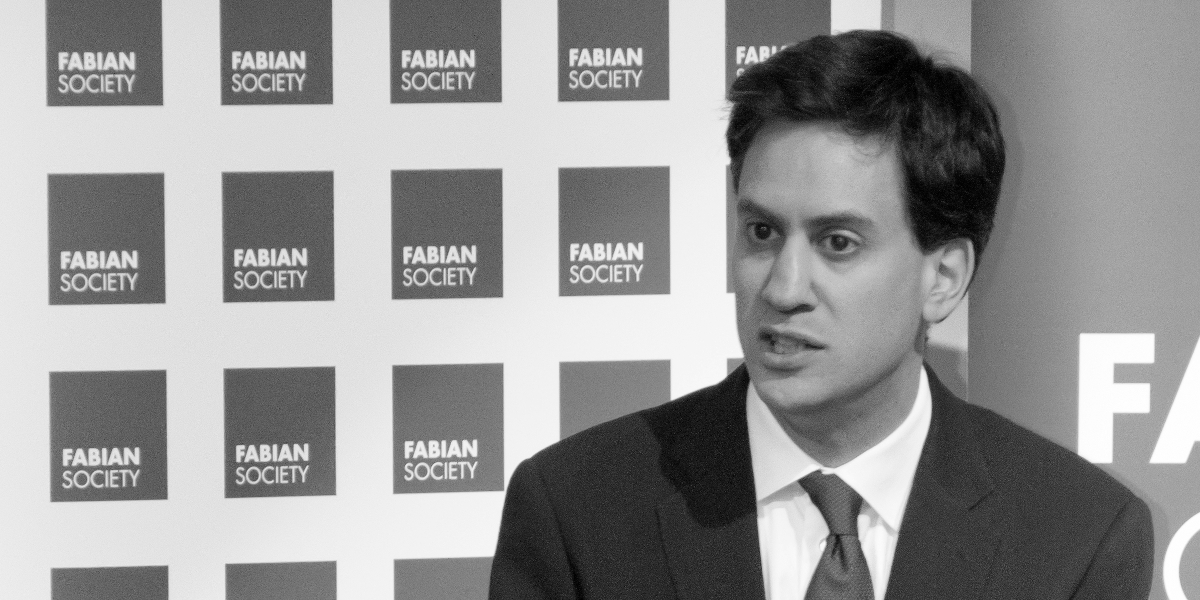The beginning of a journey
Labour’s manifesto is brimming with important policies. Individually some may be small in scale, but collectively they add up to a great deal. They will change the nation - and they are all contained within the party’s tough commitments on...
Labour’s manifesto is brimming with important policies. Individually some may be small in scale, but collectively they add up to a great deal. They will change the nation – and they are all contained within the party’s tough commitments on the public finances.
That is quite an achievement – and the policies are accompanied by stirring words, which present a vision of a better Britain, where success is defined by something more than a balanced budget.
But there is one thing today’s manifesto does not contain… surprises. The language is all familiar: it is a ‘greatest hits’ of past speeches and interview soundbites. Indeed almost every policy had been announced many times before, leaving Labour watchers today hunting for a few new morsels.
That is not a criticism. Because, until now, no one’s being paying attention. This was a day for Labour to place on a pedestal ideas the party has been quietly unveiling for years. For example, on the deficit, we learnt almost nothing new, that had not been said by Miliband in a speech last December or Balls at party conference. But Labour chose the most important set-piece of the campaign to re-state and strengthen those past commitments.
The absence of surprises does not mean the manifesto was without interest. There were no explosions. But the manifesto revealed, in a new light, a sense of how Labour will govern. So what did we learn?
1. Prudence but not fiscal masochism
The focus in the presentation today were the tough constraints on public spending: Labour re-committed itself to falling debt and a balanced current budget; and every policy announced in the manifesto is fully funded.
But the party has not tied its hands behind its back, avoiding the error of 1997, when Gordon Brown copied Ken Clarke’s eye-watering spending plans. So while every new promise is paid for, Labour has also retained the flexibility to spend more than the coalition from next April – or rather to cut less. Despite the tough talk, Labour will not have to slash £12 billion from social security or £18 billion from public services.
This is what allows the party to make its funded spending commitments: chosen tax rises can be earmarked to each policy, because they will not be needed to bail out other budgets in the face of drastic cuts.
The controversy of the day turned on the question of whether Labour could avoid cuts altogether and still meet its fiscal rules. The IFS has said as much, but the party has been reluctant to agree, which has given rise to tension between Jim Murphy and his colleagues in London. The manifesto repeats the established line that there will be cuts outside protected areas. I’m left wondering whether Labour is actually saying their will be ‘some’ cuts – in certain non-priority programmes – not that overall non-ringfenced spending will fall. After all, why commit to cuts when you don’t need to? There is studied ambiguity.
2. An intellectual score draw
On to matters more parochial to the Fabian Society. Throughout the parliament Labour has enjoyed an intellectual sparring match between Blue Labour’s communitarians and Fabian egalitarians. Today’s manifesto marks the point of synthesis – with policy commitments reflecting the party’s two competing instincts.
One passage from the manifesto’s introduction reflects the ‘score draw’ between the rival schools of Labour thought:
Labour is renewing our traditions as the Party of work, family and community. We believe in a society of trust and mutual obligation, in which we look after the vulnerable, and people can bring up their families with hope for a better future. And we believe in helping people to help themselves, both to improve their own communities, and to achieve their ambitions.
We are also the Party of equality. We believe that no person should suffer discrimination or a lack of opportunity. The decisions we take in government will always be taken with this in mind. The policies in our manifesto will help remove the barriers that stand in the way of greater equality. We know we achieve more when we work together to challenge inequalities of power and build a common good.
The party is signing up to a different sort of egalitarianism from traditional Labour statism. To start with, the manifesto re-states the party’s commitment to fighting inequality in the market, not just afterwards through state intervention. And then, within public services, it makes a commitment to sharing power with people and a new wave of decentralisation.
Neither approach is the stereotype of Fabianism – but these are directions recent Fabian reports on public services and business partnerships have endorsed, as long as they are means towards egalitarian ends.
3. Inequality and poverty
The scale of the challenge was recently described in our report Inequality 2030, which showed that inaction – let alone more cuts – will lead to a sharp rise in poverty and inequality. The manifesto’s egalitarian instincts are very clear, and there are some important commitments, although they are only a starting point. More will be needed in due course.
Most importantly, the document restated Labour’s commitment to Gordon Brown’s child poverty targets, even though it acknowledged they could not be met by 2020. The party now needs to identify a realistic new deadline.
And there was another important development. In future the Office for Budget Responsibility will monitor and report on child poverty. This sounds like a trivial commitment but it could make a big difference, since until now the OBR has only commented on how expensive policies are, not on whether they are helping to improve people’s lives.
Widening the OBR’s remit so it is responsible for commenting on the poverty impacts of government decisions will address a major weakness of the current model and hard-wire a focus on poverty into spending decisions.
Inequality 2030 called for a twin-pronged attack on poverty, through improvements to the labour market and social security. We saw commitments on both fronts today. On the minimum wage, the headline was a commitment to pay £8 per hour by Autumn 2019. But the real meat of the policy went unnoticed by most commentators: the party promised that the NMW would move ‘closer to average earnings’. That means its value will need to rise by more than mean pay over the parliament, so reducing earnings inequalities.
There was also a new promise to safeguard tax credit entitlements. This is a vital step, which marks Labour apart from the Tories with their plans for huge welfare cuts. Any cuts would significantly increase child poverty and reduce living standards for middle income families. In the long-run the value of tax credits will need to rise in line with earnings to tackle poverty and inequality. But for now, preventing any further deterioration – accompanied by a higher minimum wage – is a vital start.
4. Care in crisis
The manifesto also reveals the limits of what can be achieved in a highly constrained financial environment. On the crisis in adult social care, the document is strong on diagnosis but its solutions are not adequate to the challenge.
Labour’s funded commitment is for 5,000 new homecare workers, as part of the £2.5 billion Time to Care package. This is nothing like what is needed to reverse the huge fall in access to care since 2010.
And there is no hint of a long-term settlement for the funding of social care. The manifesto does not even criticise the woeful care funding reforms which are about to be introduced, following the recommendations of the Dilnot Commission. Rather it offers what sounds like an endorsement: ‘Labour supports measures to cap the costs of care’.
This is a climb down from the position the party agreed in September: ‘on social care the starting point is that the status quo, including the Government’s version of the Dilnot reforms, is no longer an option.’ And the policy bears no resemblance at all to the party’s bold 2010 manifesto commitment for a National Care Service. It would be a regrettable if Labour’s silence on such an important issue was the result of shadow ministers being unable to agree.
The example of social care shows how tough things get, when new money, on a significant scale, really is the only answer. In such instances a fully-funded manifesto can only offer short-term, sticking-plaster answers. But then there should be a roadmap too – a recognition that the solution on offer is only a start – with a process for providing better answers in time.
On issues like social care, Labour’s admirable manifesto must be the beginning of a journey, not the last word.

